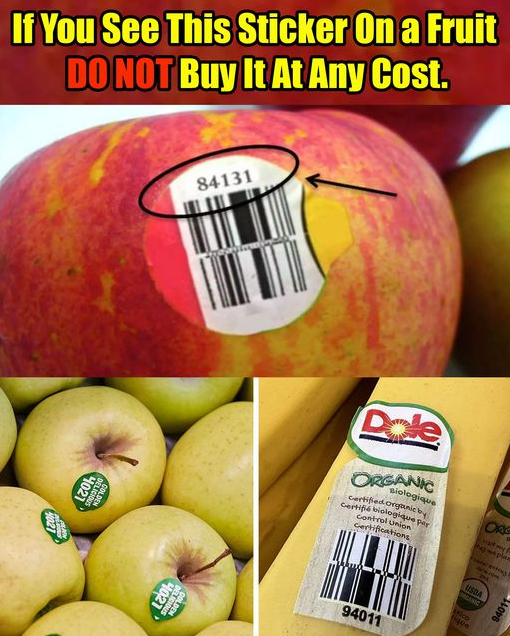Ever wondered about those tiny numerical codes adorning the fruit in your local supermarket? Beyond expediting the checkout process, these labels carry significant information about the fruit’s journey from farm to table.
While applicable to vegetables, herbs, and nuts as well, fruits predominantly bear these labels, offering valuable insights into their cultivation methods.

UNVEILING THE MEANING BEHIND FRUIT LABELS
FRUIT LABELS TYPICALLY FALL INTO 1OF 3 DISTINCT CATEGORIES:
Conventional: A four-digit code denotes conventional cultivation. These fruits undergo growth using traditional farming practices, often involving pesticides and chemical fertilizers, potentially affecting soil health.
Genetically Modified: A five-digit code starting with the number 8 indicates genetic modification. These fruits are engineered to resist pests and may involve pesticide usage during cultivation.
Organic: A five-digit code commencing with the number 9 signifies organic certification. Organic fruits are grown without synthetic pesticides or fertilizers, promoting soil health and environmental sustainability.
MAKING INFORMED CHOICES: PESTICIDES, ENVIRONMENT, AND LOCAL SUPPORT
Pesticides and Health: While conventionally grown fruits may use pesticides, it’s essential to remember that the pesticide residue levels on fruits typically comply with regulatory safety standards. Nevertheless, many individuals choose organic options to minimize potential pesticide exposure, especially if they have concerns about health or specific dietary preferences.
Environmental Impact: The choice between conventional and organic farming also has environmental implications. Organic farming practices often focus on soil health and sustainability. These methods aim to minimize soil erosion, conserve water, and reduce chemical runoff. Supporting organic farming can be viewed as a way to promote more environmentally friendly agriculture.
Local Farmers: Buying from local farmers at farmers’ markets or through Community Supported Agriculture (CSA) programs supports your local economy, reduces food miles, and often ensures fresher produce. Local farmers may employ sustainable farming practices, even if they’re not certified organic. Engaging in conversations with local farmers can provide insight into their farming methods.
